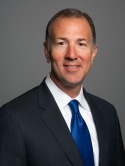The two largest options exchanges are taking steps to protect exchange market makers from poaching by high-frequency traders.

This week the International Securities Exchange instituted a new rule that eliminates the priority high-frequency traders once had in that marketplace. Under the rule change, high-frequency traders will no longer be able to jump ahead of the exchange’s market makers in the competition for orders.
As of yesterday, ISE members representing customer orders must designate those orders as "priority" or "non-priority." Priority orders are expected to be those from traditional retail customers. Non-priority orders are those from high-frequency traders. Only those marked "priority" will be able to cut in front of market maker orders at the same price.
"This will provide market makers with priority when they make a market and level the playing field with high-frequency traders," Gary Katz, the ISE’s president and chief executive officer, said at the recent FIA/OIC conference. "We hope this goes a long way to maintain co-existence between high-frequency traders and retail customers."
The dividing line between a retail customer and a non-priority high-frequency customer is now 390 orders per day, or one order a minute. Anyone doing 390 orders per day or less on average during a calendar month is considered a retail customer and is allowed to step in front of a market maker when competing for flow. Anyone doing more than 390 orders per day per month is considered a professional customer and trades on parity with market makers.
The Chicago Board Option Exchange plans to institute a similar rule sometime in the coming months. "We think the ISE approach is a very good one," Ed Tilly, a CBOE executive vice chairman, said at the same conference. "We will start with an algorithm that waives customer priority when a customer establishes a professional bid or offer."
The ISE change got approved by the Securities and Exchange Commission this January. The CBOE recently submitted its filing to the regulator.
In addition to eliminating priority for the order-per-minute customers, the ISE originally planned to levy fees on trades by these players. It has since dropped that idea. Like retail customers, high-frequency traders will not be charged for most trades.
Retail customers have had priority over market makers since the advent of organized options markets some 35 years ago. The CBOE, the nation’s first options exchange, gave the retail customer an advantage over dealers at its inception. The point was to alleviate any concerns retail traders might have that options trading was a "rigged game." Most options flow has traditionally come from retail customers.
In recent years, however, the presence of black box traders feeding thousands of orders and cancellations into the options market daily has grown. By operating technically as "customers," they have taken undue advantage of the customer priority rules, critics contend. Market makers have complained bitterly for several years of losing trades to high-frequency traders, or as they describe, "wolves in sheep’s clothing."
Other exchange officials support the moves by the CBOE and ISE. "I don’t think it’s right to allow these guys who are capable of sending the orders at the speed of quotes to get the priority that customers enjoy," Ed Boyle, an NYSE Euronext senior vice president in charge of options trading, told the FIA/OIC crowd. "Customer priority in the options business was put in for a good reason. It was also put in before electronic trading was really available."
Needless to say, some professional traders and their agents are not happy with the changes. "There are a lot of customers trading like market makers who are not making a lot of money," Jon Schlossberg, a product manager at Lime Brokerage, which acts as agent for high-frequency traders, said at the FIA/OIC conference. "They have to do a lot of trading if they want to have a viable business. Priority is a way to have that probability of execution."
Schlossberg says many of these smaller players will be unable to compete with large market makers such as Timber Hill or Citadel. That will force them to alter their trading styles. "They will be more opportunistic," he said. "There will be a lot more picking off than quoting because quoting won’t get you done. You are forcing the customer to adopt a more active trading strategy to pick off the market maker."
Matthew Gray, a managing member of Simplex Trading, notes that while priority is "quite nice" it has been a problem between the exchanges and the high-frequency trading community for a while. Still, he believes the new rules will do little to hinder determined professionals. "The 390 orders per day is not really solving the problem," he said. "There are plenty of people out there who are more than willing to bend the rules. It could ultimately be a bigger problem than it is today."
The CBOE’s Tilly agrees there may be room for gaming the new rules. "There is always someone a half-second ahead of the regulation who will try to find ways around what we put up with good intentions."



